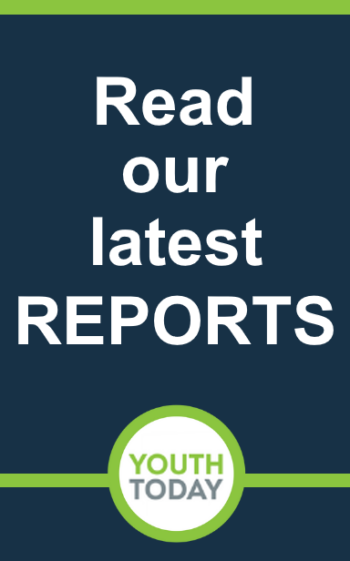The Robert Bowne Foundation (RBF) takes an “inquiry stance” toward its work — both with grantees as well as with the larger field of Out-of-School-Time (OST) youth literacy. Here, “inquiry” refers to the self-discipline of taking the time and space to step back, examine and articulate the “why,” “how,” and desired “results” of one’s work — and then to make any necessary changes.
The basic stance of the Foundation toward its own practice is one of inquiry. Such a stance implies an ongoing self-discipline, reflection, and collection of feedback and information regarding both grantee needs and the results of Foundation practices.
RBF’s deeply embedded inquiry stance begins with the Foundation’s Board of Trustees. In a May 2012 interview, RBF Trustee Suzanne Carothers demonstrates how such a perspective infuses the Board’s discussions:
“The role of the Board is also as a model for learning inquiry and the willingness to deepen one’s understanding. If we are investing in a community, how do we understand [it]? … How do you help underserved communities and under-resourced programs and the people who serve those communities develop their voice?”
RBF Executive Director Lena Townsend and Program Officer Anne Lawrence each brought their own experiences and perspectives as practitioners — along with an inquiry stance — to their Foundation roles. As a result, each individually — as well as together — set about studying what promotes constructive institutional change. They approached this inquiry through the “action research” skills each had acquired as teacher-practitioners studying the learning processes of their own students.
In a 2013 joint interview, Townsend explains:
“I began inquiry work early on at the Institute for Literacy Studies [at Lehman College], through the Adult Education Inquiry Project. Thinking about things as an action researcher was a very different way to teach.”
To which, Lawrence adds:
“I have learned from personal experience with professional development that if I come with my own questions, I learn so much.”
During a July 2011 interview, RBF consultant Suzanne Marten describes several layers of inquiry that she takes into account when working with program staff:
“One level of inquiry-based learning is about setting up contexts for kids to engage with materials and figure things out. In a strong early-childhood inquiry-based program, classrooms are set up to encourage children to explore — whether it is sand or books — and develop their understanding of how things work. … We learned that inquiry-based learning can be done in any context. It was originally done in science because the scientific method is inquiry-based. But not just in science. We saw that you can do the same thing in literacy…
“Classrooms need to be set up for inquiry for kids, but teachers also need to be engaged in their own inquiry. [That is,] inquiry into particular learners and what they need; inquiry into structures and supports needed to make the most of their learning. I see teaching as an inquiry process, whether it takes place in school or afterschool…
“Eventually, inquiry leads into looking at programs. Looking at particular learners sends you to the program level. You end up doing things like curriculum-mapping and other things. The question of integrating literacy throughout an afterschool program requires looking at the entire program…
“I want to mention one other layer of inquiry. I’ve learned and grown tremendously by being involved with Bowne about how to do TA [technical assistance] and professional development.
“[Bowne staff] recognize that learning takes place over time and that everybody has the capacity to grow. They take people and organizations where they are and help them move to the next step. That is one of their commitments.”
An important component of the Foundation’s notion of “inquiry stance” is the assumption that the field serves practitioners — and that, moreover, a strong field is built by practitioners exploring their own questions. As a result, Foundation initiatives aim to meet the real needs of people and organizations. Thus, routine RBF practices — such as annual grantee questionnaires, support visits, and the collection of written feedback after every professional development and networking session – are all designed to identify grantee needs. Such an approach allows the expertise of both Foundation staff and consultants to aim to address actual problems encountered by particular staff.
Thus, for example, when agencies express concern about funding and sustainability, Anne Lawrence raises questions about the membership of their Boards of Directors as well as their sources of income. Moreover, RBF consultants such as literacy expert Suzanne Marten and evaluation professional Kim Sabo Flores bring current research and best practices to their work with grantees.
At the same time, RBF believes in and acts on the notion that one can rely on practitioners to make theory. RBF Executive Director Lena Townsend encountered the idea, with its key value of “teachers teaching teachers,” during her work at the Institute for Literacy Studies with the New York City Writing Project.
Anne Lawrence describes this commitment in an interview in September 2013:
“Both Lena and I felt strongly that youth practitioners could benefit from doing the sort of project where they had the opportunity to delve more deeply into their work and their questions.”
Based both on its work with individual grantees to enhance organizational capacity, professional development, and research capability as well as its broader efforts in publishing, advocacy, and explorations of next steps – RBF has rich, grounded evidence that an inquiry stance strengthens practitioners and their efforts, programs, and organizations.



















